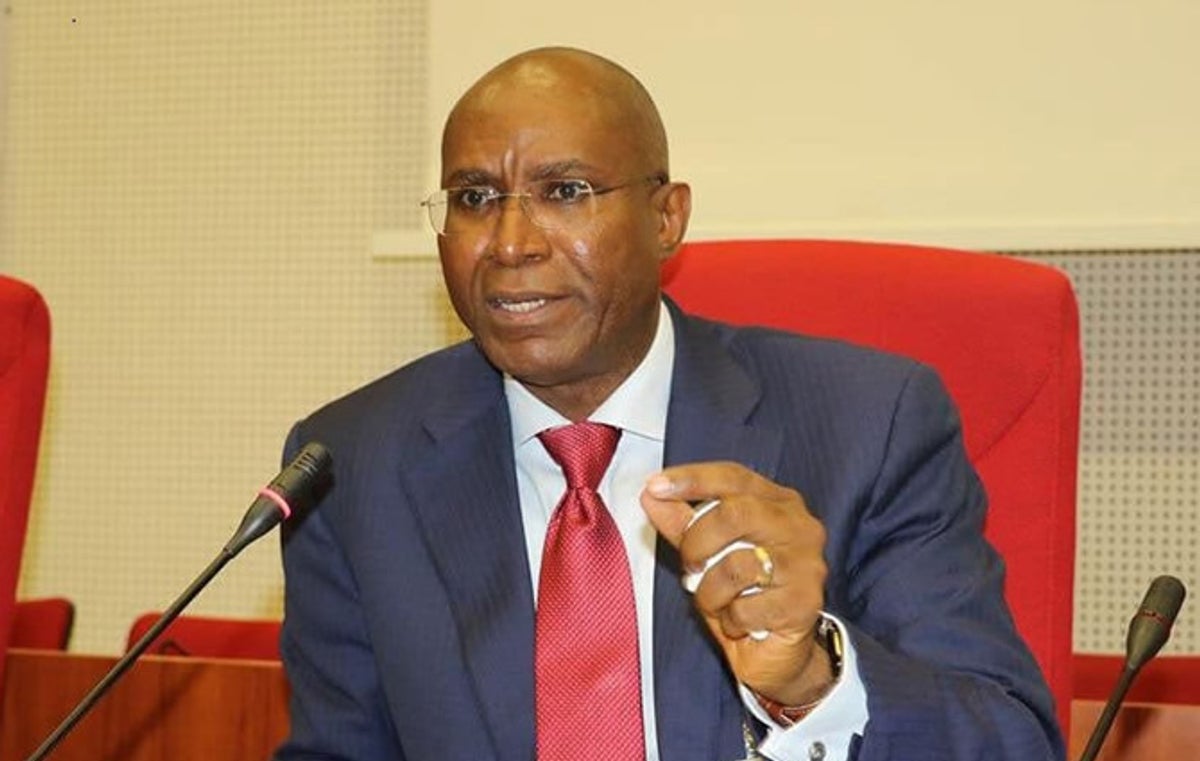Ovie Omo-Agege, the deputy president of the Senate, on Tuesday, November 17, 2020, disclosed that oil-producing communities in the country would benefit the most from the passage of the Petroleum Industry Bill, PIB, as well as the deregulation of the downstream petroleum and electricity sectors.
Speaking in Owerri, at the Host Communities Colloquium on the Petroleum Industry Bill, PIB, organised by Order Paper Advocacy Initiative, Omo-Agege noted that with the lofty objectives of the PIB and the intervention mechanisms for host communities; both existing ones and the ones expected to come with the Bill, a lot of things were expected to happen that would be beneficially impactful on host communities.
Omo-Agege, who was represented by his Chief of Staff, Otive Igbuzor, said: The first, by no order of importance, is a holistic interface with the on-going deregulation of the petroleum and electricity sectors of the economy to promote the creation of job opportunities both directly and through petroleum and gas-based industries, plus other industries that are ancillary to them.
The impact on youth employment can only be imagined. “Further, direct foreign investors would have more confidence in the oil and gas economy. They would come in droves to take advantage of the new opportunities the new economy would offer them.
“Closely related to this is the market-driven competition that will come about. This would mean a capacity for firms both local and foreign that are domiciled in Nigeria to take care of all the segments of the value chain at the upstream, midstream, and downstream sub-sectors of the industries.
“In all these, the host communities would benefit the most from the boom that will follow. There will be jobs in abundance; as already noted both direct from operating companies and from industries whose activities are ancillary to them.
“The strict rules of administration and governance enabled by the regulatory agencies will ensure adequate environmental care and social responsibility by operating firms. There will also be, as a result of the eventual law, robust intervention funds, and schemes. It will indeed be a win-win situation for the host communities.”
Omo-Agege further urged youth in these host communities to support the PIB, currently before the National Assembly, as they would benefit the most from the economic activities to be commanded by the new law.
According to the deputy senate president, the greatest good for the communities that host this petroleum resources, is also clearly a cardinal objective of the coming statute, as can be seen from the objectives of the PIB.
He argued that over the years, the country had witnessed avoidable restiveness from these host communities, that border around what has been perceived as inadequate care or concern for the survival, and, or well-being of these peoples.
“I want to say that whatever administrative shortfalls that may have informed these acts of resistance, would not have been there if the appropriate interface between the operating companies and the host communities was the order,” he advanced.
Omo-Agege added that the rules of such interface at every segment of the value chain could only be prescribed and administered by appropriately constituted and operated regulatory agency or agencies.
Also speaking, Oke Epia, the executive director, Order Paper Advocacy Initiative, added that the PIB currently before the National Assembly, contains provisions that impact the lives and living conditions of the people of Niger delta; and indeed all oil-bearing communities in the country
He said: “I am inclined to the view that not only does the Bill sidestep the ownership question but also tends to outsource government responsibility for robust redress of the debilitating consequences of extraction to corporate.
“In a sense, we may be dealing with a coterie of corporatist instruments of state capture. But I am also aligned with the argument that a law is better than no law in the ongoing quest for reforms.
“While the PIB may not be tailored to address the decades-long resource ownership question, it nonetheless presents an opportunity to make incremental gains in the agitation for a better Niger Delta region.”
Source: Vanguard







